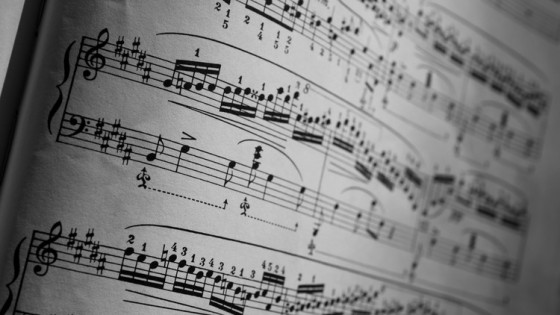Udemy Music Theory for Electronic Musicians 2: Minor keys and More (Update 2019) TUTORiAL

P2P | 01 January 2020 | 1.67 GB
What you'll learn
By the end of this course, you will have improved your tracks by understanding how to build chords and melodies that work together.
Use the circle of fifths to generate new ideas for your own tracks
Work within minor keys to write compelling melodies and basslines
7th chords
Maj7 and minor 7th chords
Dominant 7th chords
Blues and the 7th chord
Analysis: Shame On Me (Avicii)
Minor scales
Relative keys
Minor diatonic chord progressions
Analysis: Ghosts N Stuff (Deadmau5)
Changing keys in your track
Analysis: Get Luck (Daft Punk)
9th and 13th chords
Suspended Chords
Writing melodies for chord progressions
Writing chord progressions for melodies
Bass lines
Analysis: Windowlicker (Aphex Twin)
Modes
Producing with Modes
Requirements
Students should be enthusiastic about music, but do not need to be producers or musicians. No prior experience is needed in music theory, production, or recording.
Access to a DAW: any program will do. (GarageBand, Logic, Pro Tools, Ardour, FL Studio, Ableton Live, etc.)
Although Ableton Live is used in the class, students do not need to be Live users. But they should have access to some kind of audio program with MIDI sequencing. Garageband, Logic, or several free pieces of software all work great.
Description
** UDEMY BEST SELLER **
Welcome to the MUSIC THEORY FOR ELECTRONIC MUSIC Guide - Part 2!
In this class we learn how to work with the piano roll editor in a DAW to make harmonies, melodies, and whole tracks, and then we expand on those ideas and work with harmonic patterns (harmony) that is more rich than just major and minor.
Production Techniques Through Theory
The most important part of this class is an extensive foray into using these techniques in actual tracks. I'll be creating 9 tracks through this class, right along with you, each using a different technique so you can see exactly how I incorporate it right into my music.
Full Sessions
After each production project, I'll give you the whole session of what I made using the techniques for you to play with. You can download it, expand on it, re-work it, and even release it as your work.
If Your Music is Missing Something, This is Probably It.
If you are finding that you are writing track after track, and while they sound good, there is something they are missing - then this it. You are missing the sense of harmony that professional producers have. In this class, I'll arm you with all the tools you need to produce those tracks just like you imagine them.
Who should take this course?
Anyone interested in producing their own music. This will get you up and running and give your tracks a unique sound in no time.
Structure
This course consists of video lectures, which all contain a session in Ableton Live 9. If you are using a different program (or none at all), no worries! This isn't a class on how to use Ableton Live, and the concepts can be applied to any DAW.
Topics include:
Minor Scales and Keys
Minor Diatonic Chord Progressions
Changing Keys in a track
9th and 13th Chords
Suspended Chords
Writing Melodies for Chord Progressions
Writing Chord Progressions for Melodies
Writing bass lines
Modes
Producing with Modes
... And much more!!!
MP4 | Video: h264, 1280x720 | Audio: aac, 44100 Hz
Language: English | VTT | Duration: 5 hours
home page:
https://bit.ly/37qUiyb
DOWNLOAD
Related News:
 Punkademic Music Theory for Electronic Music COMPLETE Parts 1 2 & 3 TUTORiAL
Punkademic Music Theory for Electronic Music COMPLETE Parts 1 2 & 3 TUTORiALP2P | 21 October 2019 | 4.88 GB Welcome to the MUSIC THEORY FOR ELECTRONIC MUSIC COMPLETE Guide! This course is a combination of all three of my Music Theory for Electronic Musicians classes: Music Theory for Electronic Musicians, and Music Theory for Electronic Musicians 2, and Music Theory for Electronic Musicians 3....
 SkillShare Writing Music 101 Create a Chord Progression in a Minor Key TUTORiAL
SkillShare Writing Music 101 Create a Chord Progression in a Minor Key TUTORiALFANTASTiC | 30 March 2019 | 410 MB Gain an understanding of how to write a tonal chord progression in a minor key with composer Jason Rivera. This 20-minute class covers how to create a balanced chord progression in a minor key using a time-honored method....
 Udemy - Music Theory for Electronic Musicians 3: Extended Harmony TUTORiAL
Udemy - Music Theory for Electronic Musicians 3: Extended Harmony TUTORiALP2P | 25 July 2017 | Video + Project File | 1.82 GB Producing music using the harmonic patterns of the professionals! Understand and apply new harmonic ideas to your songs Produce music using techniques outside of just major and minor keys Understand and use the 7 musical modes...
 Music Theory Comprehensive Part 3 - Minor Keys and More TUTORiAL
Music Theory Comprehensive Part 3 - Minor Keys and More TUTORiALP2P | September 01 2016 | 617 MB A Complete College-Level Music Theory Curriculum. This is Part 3: Minor keys, Circle of Fifths, and Compound Meters. For years I've been teaching Music Theory in the college classroom. These classes I'm making for Udemy use the same syllabus I've used in my college classes for years, at a fraction of the cost. I believe anyone can learn Music Theory - and cost...
Comments for Udemy Music Theory for Electronic Musicians 2: Minor keys and More (Update 2019) TUTORiAL:
No comments yet, add a comment!